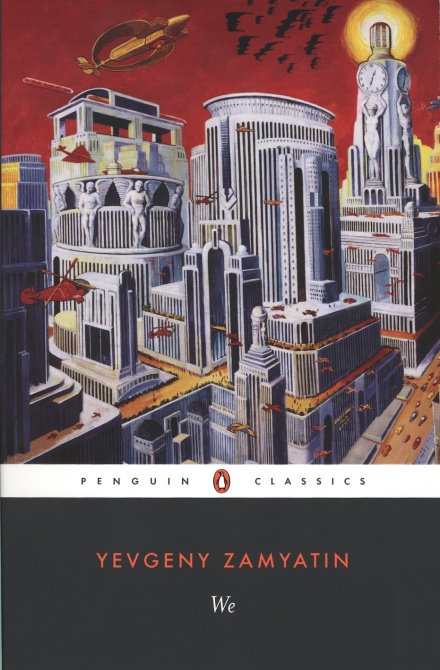What do you think?
Rate this book


226 pages, Paperback
First published January 1, 1924
What makes 'We' special is not dystopian society alone.
"Because I live now not in our rational world but in the ancient one, senseless, the world of square roots of minus one."
“You're afraid of it because it's stronger than you, you hate it because you're afraid of it, you love it because you can't master it. You can only love something that refuses to be mastered.”
“So here I am in step with everyone now, and yet I'm still separate from everyone. I am still trembling all over from the agitation I endured, like a bridge after an ancient train has rumbled over it. I am aware of myself. And, of course, the only things that are aware of themselves and conscious of their individuality are irritated eyes, cut fingers, sore teeth. A healthy eye, finger, tooth might as well not even be there. Isn't it clear that individual consciousness is just sickness?”
Written in 1920, before the Soviet Union even existed, it predicted the Stalin and Brezhnev eras with terrifying foresight. Evgeniy Zamyatin did not share the fascination with the new State and the glory of the Great October Socialist Revolution.
“The only means of ridding man of crime is ridding him of freedom.”With his novel, Zamyatin disagrees. No wonder it was banned in the Soviet Union until late 1980s - since one of his characters brings up the ultimate blasphemy:
"There is no final revolution. Revolutions are infinite."At that time, during the birth of the "new world order" that emphasized the good of the State over the good of individual "cogs in the machine", the beauty of uniformity of unity over individual variations, Zamyatin described the hollowness that replacing soul and love with cold reason and logic and individuals with "numbers" would bring. In this world everything is rationalized, de-individualized, regimented, and oppressively safe. Even the leader, the "Benefactor", is little but a slave to the State.
“Now I no longer live in our clear, rational world; I live in the ancient nightmare world, the world of square roots of minus one.”Zamyatin's characters try to go against the great tide, try to resist the State. As a result, at least for a short while, his protagonist gets diagnosed with a serious medical condition - developing a soul. But, fittingly for a dystopia, there is no happy ending - just a reader's faint hope that for some of them not all is lost.






“My dear—you are a mathematician. More—you are a philosopher, a mathematical philosopher. Well, then: name me the final number.”
“What do you mean? I . . . I don’t understand: what final number?”
“Well, the final, the ultimate, the largest.”
“But that’s preposterous! If the number of numbers is infinite, how can there be a final number?”
“Then how can there be a final revolution? There is no final one; revolutions are infinite.”